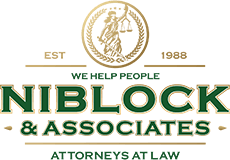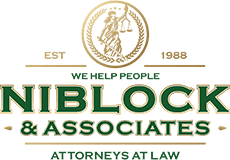The purpose of bankruptcy is to give debtors a new start in their financial affairs. One of the most powerful tools to do so is the bankruptcy automatic stay.
When you file a bankruptcy, an “estate” is created which includes all of your property as a debtor. The automatic stay effectively puts a lock on this estate, and prevents creditors from taking property away from the estate. As such, the automatic stay will prevent creditors from calling you and trying to collect a debt, stop the garnishment of your wages, stop foreclosures, and prevent creditors from trying to repossess your property. This automatic stay applies as soon as you file for a bankruptcy. It stays in effect throughout the bankruptcy until the time of discharge of your debts.
From a policy standpoint, an automatic stay helps both debtors and creditors. As a debtor, you can feel relief in knowing that you no longer need worry about creditors trying to collect a debt or otherwise pursuing your property. On the other hand, creditors benefit because there is no scramble to take away the debtor’s property. A bankruptcy filing creates an orderly process for figuring out the assets of the debtor, deciding which assets are exempt and therefore safe from creditors, and which assets are non-exempt and can be sold for payment to creditors.
VIOLATIONS OF THE AUTOMATIC STAY
When a creditor violates the automatic stay, there can be action for money, punitive damages, and attorney fees. For instance, if you file for bankruptcy and your car is repossessed after you file, your bankruptcy attorney can ask the lender to return the car. This is because the car is considered property of the bankruptcy estate when you filed for bankruptcy, and the lender no longer has a right to try to obtain the car for failure to make payments.
A debtor does not have to be in possession of property for the automatic stay to apply. If the car lender refuses to return the car, that action can be considered a willful violation of the automatic stay. The bankruptcy court will order the car lender to return the car and can award damages.
Similarly, if your wages are currently being garnished due to unpaid medical bills, your employer must stop garnishing your wages when notified of the bankruptcy filing. Wages are considered to be a property of the bankruptcy estate, including wages held in bank accounts. If you continue to receive debt collection letters or phone calls after you have filed for bankruptcy, you should notify your bankruptcy attorney. He will have unique knowledge of the local procedure involving the automatic stay, and how to conduct stay litigation.
A creditor can also file a motion with the bankruptcy court asking for relief from the automatic stay. This relief can be “for cause,” such as if the creditor believes the debtor does not have sufficient insurance to protect a secured property. These motions for relief from the automatic stay are more common in Chapter 13 bankruptcy cases involving repayment plans lasting three to five years. They are less common in a Chapter 7 straight liquidation bankruptcy case. The bankruptcy court will hold a hearing to determine whether the automatic stay should be lifted.
EXCEPTIONS TO THE AUTOMATIC STAY
There are some exceptions to the automatic stay rule and these are outlined in the Bankruptcy Code.
There is no stay for a criminal case starting or continuing against the debtor, for a case to establish paternity, for a case involving child support or child custody, for a divorce case unless the parties are trying to divide property that belongs to the bankruptcy estate, and for collection of child support. Because divorce and bankruptcy proceedings can often be occurring together, the Bankruptcy Code allows many of these family law matters to continue even if the husband or wife has filed for bankruptcy.
There are also a few other instances where there is no automatic stay. If you have questions about whether the stay will apply to your bankruptcy case, your bankruptcy attorney can discuss these particular situations with you.
STOPPING THE AUTOMATIC STAY
At the end of your bankruptcy, the automatic stay is removed. Instead, a discharge injunction is put into place. Creditors cannot collect any debt that was properly discharged in a bankruptcy.
However, a debtor may still need to surrender property as part of the bankruptcy process. If a debtor wants to keep certain property, he may be able to redeem the property or sign a reaffirmation agreement with the creditor. Redemption is where a debtor is allowed to pay the creditor the value of the property with one lump payment. Reaffirmation is different because it is meant to be a contract between the debtor and creditor. In some cases, you may be able to keep making payments on time to a creditor to keep your property and will not need to formally reaffirm.
The benefits and downfalls of keeping property instead of surrendering it should be discussed with your bankruptcy attorney.


